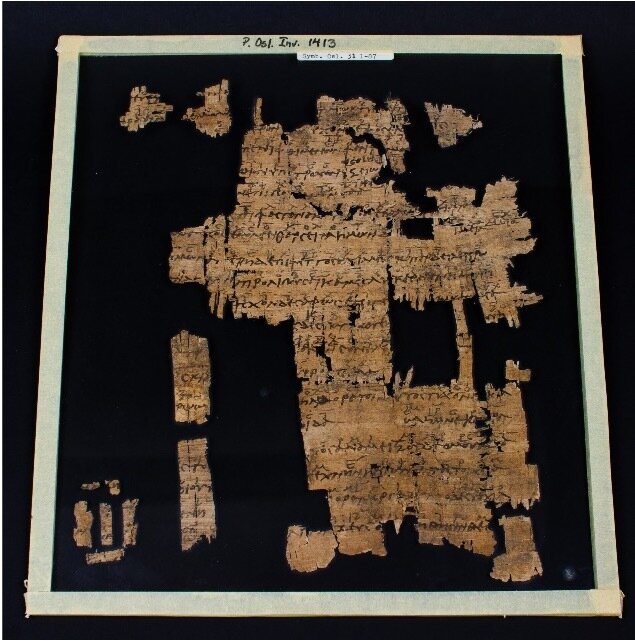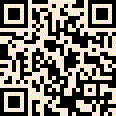BærUt!
Bærekraftige Digitale Vitenskapelig Utgaver
UB/SamDig
February 13, 2024
09:00 to 09:30
Annika Rockenberger
Background
IT for Research at the
University of Oslo
The Strategic Coordination Group for IT in Research (SK-ITF) coordinates and recommends measures within IT in research at the university and reports to the Research Committee.
Source: https://www-int.usit.uio.no/om/it-dir/strategi/masterplan/sk/sk-itf/
Hub/Nodes
-
Funded by UiO's Strategic Coordination Group for IT in Research as a Hub/Node network
-
Hub/Node organisation as a measure of implementing UiO's research infrastructure masterplan
-
Researchers, research support units, and central IT
Key information
-
Lead Annika Rockenberger (50%), specialist in textual scholarship and digital research methods in the Humanities and Social Sciences at UB
-
Digital Scholarship Center at the University Library supplies support staff & locations for workshops, training events, seminars, conferences; takes over activities after project end
-
Research Assistant(s) (50%)
-
Budget: 2.68 mio. kroner (salaries, events & conferences)
-
Project duration: 2024–2026
Partners
-
University of Oslo, mainly:
-
Faculty of Humanities,
-
Faculty of Theology,
-
Museum of Cultural History,
-
Museum of University History and History of Science
-
University Library
-
IT Department
-
HumIT at Faculty of Humanities
-
-
Oslo Metropolitan University
-
Norwegian School of Theology, Religion and Society
-
Munch Museum
-
Open for anyone, targeted towards researchers, software engineers and cultural heritage specialists
Why Do We Need BærUt?
Point of departure
Problem statement
Solution proposal
Humanities Data:
Multi-disciplinary, Multilingual,
Semi-structured,
Costly and Crucial
-
Humanities data is often text or text-like phenomena & often in semi-structured formats
-
There are standards for markup, coding, metadata, but they are not widely known and discipline-specific
-
A lot of resources are invested in creating DSEs
-
They are aimed to be used widely across academic, cultural heritage, educational and cultural institutions and society at large

Problem:
Retention and Sharing of Skills & Knowledge,
Technical & Philological Maintenance of DSEs
-
In Norway, there are no national or international solutions for long-term archiving of DSE data, systems and user interfaces, for data accessibility, for operation of systems
-
Cannot guarantee access to and reuse of humanities data after project end
-
Valuable and precious data in outdated, unusable or legacy systems with no one to host, maintain and further develop
-
Non-Norwegian/Scandinavian materials will not be systematically indexed, archived, or kept accessible by large cultural heritage institutions like National Libary or National Archives
Transdisciplinarity as a Solution
- Transfer & development of skills and knowledge between projects, disciplines, Departments and academic and cultural heritage organisations
- Transfer & development of skills between project-based, departmental, and central IT and developer groups

University Library as a Key Player
-
Expertise in long-term preservation, accessibility, and curation of cultural heritage material
-
Strong focus on data management and FAIR & CARE principles
-
Longer-term strategy
-
Permanent hires
-
System admins, developers and digital research methods experts
-
Researchers with humanities domain expertise
-
Digital Scholarship Center
-
Physical meeting place
-
Methods partners, training and teaching
Structure
Hub and Nodes
Hub
UB
-
Data modeling
-
Systems and architecture
-
DSE foundational skills
-
Feasibility study
-
Mapping DSEs in Norway
-
Preparing NFR Infrastructure application
Encoding: Relational and Graph Databases
Material Philology
Automatic Transcription
User
Interface
HumIT
Encoding:
XML
IT Dept.
Organisation
of the Hub
Roles and Tasks
Ambassadors
- Bring BærUt! into the Depts.
- Distribute communications
- Advertise the network to fellow researchers at their Depts.
- Assist with distributing the survey
- Inform the network about relevant developments at their Depts.
- Should be on-site
- Well connected at their Depts.
- Allocate 1-2hrs per month
Node Facilitators
- Domain experts for a specific node
- Contribute to resources to the node
- Hosting network meetings and skill-sharing sessions
- Suggest activities, invitations to guest speakers, etc.
- Relay wishes from the node to the Hub/coordinator
- Editorial Board for the blog?
- Monthly check-in meeting w/ coordinators
- 5-10hrs per month for hosting, activities, resource gathering, etc.
Network Members
- Anyone!
- You want to learn something? Join!
- You want to share something? Join!
- You want to teach something? Join!
- You want a sparring partner for a project? Join!
- You want to get feedback from peers? Join!
- You want to meet people who love dead languages and computers? Join?
- You want people to use your scholarly editions? Join!
- You need to do more productive procrastination? Join!
- You are unsure whether this is for you? Join!
We're here for you!
Hub
Task Group
Surveying DSEs at UiO and in Norway
- Annika Rockenberger (UB)
- Johanne Emilie Christensen (UB)
- Federico Aurora (UB)
- Andrea Dale Wefring (HumIT)
- Anders Nøklestad (HumIT)
- Kristian Salcedo (UB)
Scientific Board
Surveying DSEs at UiO and in Norway
- Hugo Lundhaug (UiO/TF)
- Jens Erlend Braarvig (UiO/IKOS/Filologisk Institutt)
- Ellen Wiger (NB)
- Katrine Frøkjær Baunvig (Uni Aarhus/Grundtvig Center)
- Martina Scholger (Uni Graz/ZIM)
- Gioele Barabucci (Uni Cologne/CCeH)
Task Group
Feasibility Study
- Members from
UB,
HumIT,
IT Department
Activities
Knowledge and Competence
Course offer
- Hands-on workshops
- XML
- X-technologies
- TEI, MEI
- relational databases
- graph databases
- automatic text recognition
- data modeling
- archiving
- minimal editing
- 5 Research seminars
- 2 Conferences
Events Spring Term 2024
11 March: Network Meeting
8-9 April: "404 not found" Approaches to Sustainable Editions
21 May: Shut Up & Survey
28 May: Shut Up & Survey
10 June: Automatic Text Recognition of Astrid Lindgren's Short Hand Manuscripts w/Raphaela Heil
11 June: Workshop w/Raphaela Heil
Conferences 2025 & 2026
2.5 day conference in April 2025
2.5 day "project end" conference in late November 2026
Deliverables
2024/25
-
Surveying digital scholarly editions (DSEs) at UiO - and in Norway
-
Feasibility study for the establishment of a DSE infrastructure at the University Library together with HumIT and IT Department
2025/26
-
Whitepaper "Recommendations for the Long-Term Archiving, Accessing, and Maintenance of Digital Scholarly Editions Created in Norwegian Academic and Cultural Heritage Institutions"
- Preparation of NRC-infrastructure application (2026)
Network
- UiO-network for researchers, developers and research support around DSEs
- linking relevant national, Nordic and international research networks around DSEs
- interdisciplinary, philological-technical, multilingual
Contact

baerut-admin@ub.uio.no